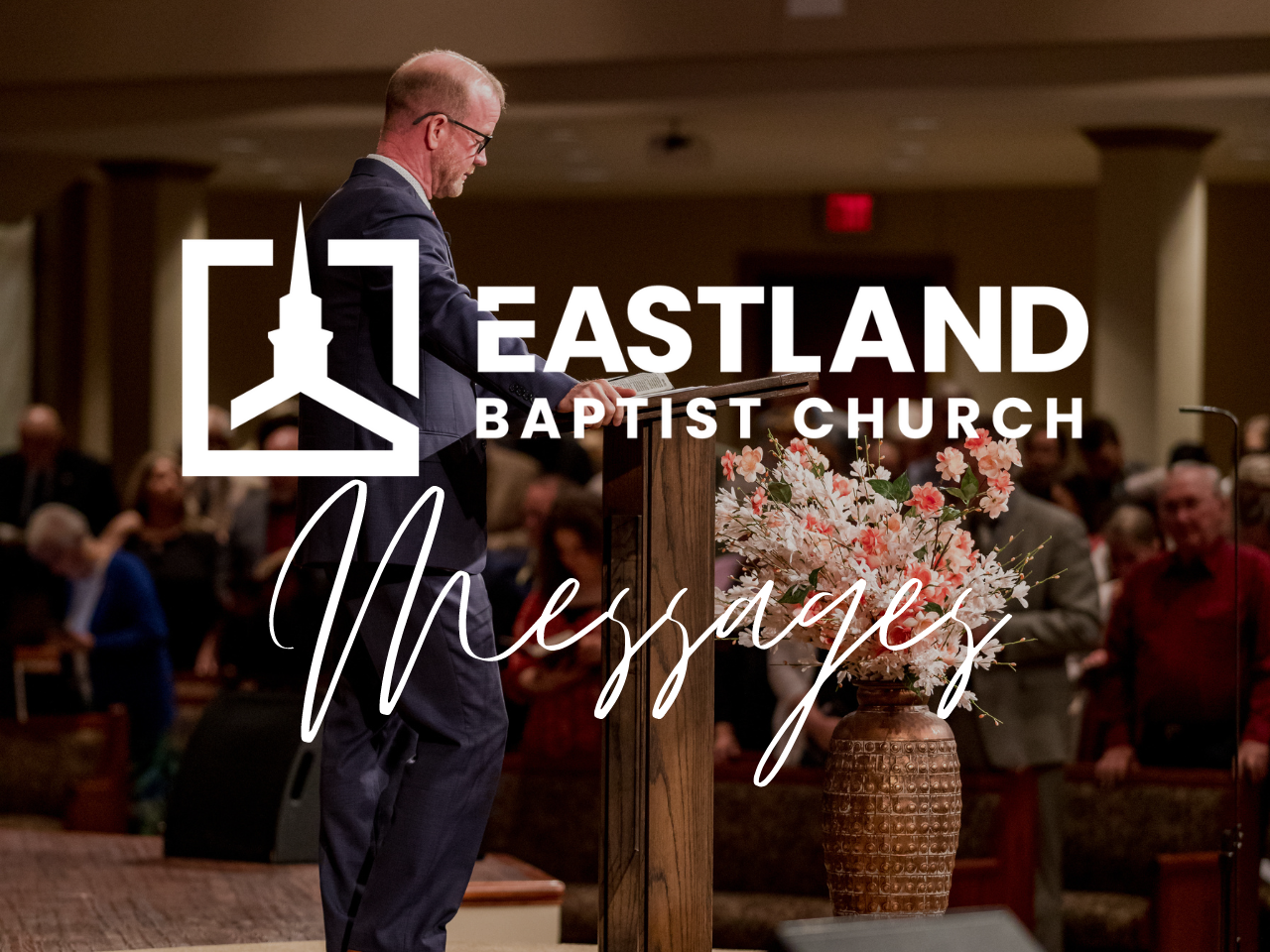What happens when brokenness becomes normal and survival replaces vision? Many live with spiritual rubble, fractured relationships, or quiet defeat for so long that dysfunction feels permanent. In Nehemiah 2:9–20, Pastor Dorrell examines how Nehemiah surveyed the ruins, confronted the people’s distress, and called them to rise and build. The sermon shows that real rebuilding begins with prayer, honest evaluation, courageous encouragement, and confidence in the good hand of God. Change requires moving from passive acceptance to active agency, trusting that faith joined with God’s help can overcome inertia and opposition. Listeners are challenged to identify their own rubble, strengthen their hands for the work, and take the first faithful step toward restoration.
Read MoreWhy does injustice permeate every corner of human life, from corrupt courts and politics to personal relationships, leaving us disillusioned and protesting inwardly against the lack of fairness? Pastor Dorrell confronts this reality through Ecclesiastes 3:16-22, where Solomon observes that humans often behave like beasts, devoid of moral superiority, and justice systems fail to uphold righteousness. He argues that while earthly institutions mirror societal brokenness, God remains the ultimate judge who will reckon with every deed, offering a sovereign resolution beyond human comprehension. Listeners are challenged to guard their hearts against bitterness, look upward to God for strength, extend grace to the undeserving, and actively help the oppressed while embracing life’s daily gifts.
Read MoreHave you ever gazed at the rubble of your life—broken dreams, strained relationships, or spiritual weariness—and wondered if restoration awaits? In Nehemiah 2:1-8, Pastor Dorrell highlights Nehemiah’s courageous petition to King Artaxerxes for rebuilding Jerusalem’s walls after four months of prayer, reversing an irrevocable decree. The message asserts God’s hand of favor rests on those who repent, pray persistently, and invest personally in restoration, as Nehemiah did. Be challenged to identify rubble in your life, seek God’s hand through prayer and action, and become an agent of rebuilding for others.
Read MoreWhy does life feel meaningless when we accumulate so much, yet lose everything in the end? Pastor Dorrell confronts Solomon's ancient struggle with futility and the human frustration with time's constraints. Through Ecclesiastes 3, he argues that God orchestrates every season of life—birth and death, joy and sorrow, building and breaking down—according to a divine plan we cannot fully comprehend. Rather than despair at life's transience, believers are called to trust God's sovereignty, release the illusion of control, and embrace the present moment with gratitude, recognizing that true meaning emerges not from what we accumulate but from how we receive each day as a gift from the Creator.
Read MoreWhen one person's absence or lack of commitment affects an entire community's capacity to accomplish its mission, how should we respond? Pastor Dorrell examines the account of Achan's violation of God's command regarding the spoils of Jericho to argue that individual participation is never inconsequential. Through this Old Testament narrative, he demonstrates that God designed His people to function as an interdependent body where each person's involvement directly multiplies collective capacity, while any withdrawal diminishes what could otherwise be achieved. Listeners are challenged to recognize their own indispensability and to commit fully to their local church's mission, understanding that their participation—in giving, serving, and presence—makes a measurable difference in what God accomplishes through the community.
Read MoreFor nearly a century, Jerusalem's remnant accepted brokenness as their permanent condition—surviving rather than thriving. How do we break free from normalized dysfunction and complacency in our own lives? Pastor Dorrell examines Nehemiah's response to his people's despair, arguing that external transformation begins with internal reformation of the heart. Through Nehemiah's four-month season of prayer and fasting, the sermon illuminates how positioning our hearts toward God's power and covenant faithfulness enables us to interrupt cycles of defeat and accomplish what seems impossible. You are challenged to identify the brokenness you've accepted as normal and, like Nehemiah, to pray, repent, and rise to rebuild what has been destroyed.
Read MoreWhat should remain after our lives have run their course, and how do our present choices shape what endures beyond us? In this sermon, the speaker examines David’s final public words in 1 Chronicles 29 to confront the tension between enjoying present blessings and investing in what lasts. By highlighting David’s generosity, gratitude, and God-centered purpose, the message stresses that true legacy is formed when God’s people willingly give beyond obligation for His glory. David’s preparation for a temple he would never see completed demonstrates a faith that looks past personal benefit to lasting impact. Listeners are challenged to consider how their giving today declares what they value and what they intend to leave behind.
Read MoreMany believers wrestle with giving when financial pressure, skepticism, or competing priorities shape the heart’s response. In this sermon, Pastor Dorrell examines Leviticus 27 to clarify the biblical distinction between offerings and the tithe, showing that the tithe is not an act of generosity but a holy return of what already belongs to God. By tracing the Old Testament pattern of stewardship, consecration, and worship, he demonstrates that withholding the tithe misunderstands God’s ownership and disrupts faithful obedience. The message challenges listeners to regard their resources as entrusted gifts and to practice worship through deliberate, joyful surrender of what God has declared sacred.
Read MoreWhen we receive grace freely through Christ's sacrifice, what do we owe in return? Pastor Dorrell examines two pivotal moments in David's life—first as a learner from Uriah's faithful refusal to abandon his brothers, and later as a practitioner of that same principle—to argue that Christian gratitude demands personal sacrifice and involvement. The sermon's central thesis is that believers cannot live off the spiritual and financial contributions of others; instead, we must echo Uriah's declaration: "I will not do that thing" which diminishes Christ's name or allows others to carry our weight. Pastor Dorrell challenges listeners to ask themselves honestly: Do you have skin in the game of your local church's mission?
Read MoreWe live in an age of unprecedented consumption, yet we are no happier than previous generations. Why does accumulating wealth, pleasure, and accomplishment leave us feeling empty? In this sermon, Pastor Dorrell examines Solomon's radical experiment in Ecclesiastes 2, where the wisest and richest man alive pursued every conceivable source of satisfaction—pleasure, wine, great works, and wisdom itself—only to declare it all vanity. Through Solomon's testimony, Pastor Dorrell argues that hedonism and material accumulation cannot satisfy the soul because they are fundamentally fleeting and superficial. Instead, true contentment emerges not from pursuing more, but from gratefully receiving and stewarding what God has already given. You are challenged to abandon the exhausting pursuit of "more" and find joy in the simple, everyday gifts of life that God places before you today.
Read MoreWhy do we hesitate to give our financial resources to God's work, even when we claim to trust Him? Pastor Dorrell confronts the defensive reactions many Christians experience toward tithing and giving by reframing money as "stored life"—the tangible representation of our time, energy, and effort. Through Romans 12:1-2, he argues that presenting ourselves as living sacrifices requires a transformed mind that recognizes giving not as obligation but as worship, a deliberate exchange of our earned resources that mirrors Christ's sacrifice. He challenges listeners to shift from conformity to worldly values toward kingdom thinking, viewing every dollar as an opportunity to invest eternally rather than temporally, and calls them to demonstrate their love for God through the concrete act of supporting His church and kingdom work.
Read MoreWhy do we pursue endless goals, accumulate endless possessions, and chase endless pleasures, only to find ourselves empty and dissatisfied? Pastor Dorrell examines Solomon's radical confession in Ecclesiastes 1, where the wisest, wealthiest man who ever lived declares that life apart from God is vanity—utterly meaningless. Through Solomon's testimony, Pastor Dorrell argues that the human heart cannot be satisfied by academic achievement, material wealth, professional success, or sensual pleasure; only a life intimately connected to God delivers genuine meaning and joy. Rather than waiting for the next circumstance, achievement, or possession to complete you, discover the liberating truth that God's presence today is sufficient for your happiness.
Read MoreHow do we honor God's faithfulness while securing a thriving future for the next generation? Pastor Dorrell examines 1 Chronicles 29 to argue that sacrificial giving—offerings beyond the tithe—represents both worship and stewardship. Drawing from David's vision for the temple and his call for the people to give generously, the sermon establishes that faithful investment in God's work today builds momentum for tomorrow. The central thesis challenges believers to recognize that generosity is not burden but privilege, and that strategic giving demonstrates faith in God's continued blessing. You are invited to participate in this legacy by prayerfully considering a two-percent financial commitment over two years, thereby positioning yourself as a faithful steward of God's provision and a builder of your church's future.
Read MoreWhat happens to a church when the pioneers who built it begin to pass the baton to younger generations? Pastor Dorrell confronts this critical question by examining Joshua's call to lead Israel into Canaan after Moses' death. Rather than abandoning the vision of the past, Joshua is commanded to continue and expand it—honoring what was built while propelling it forward. Dorrell argues that spiritual and institutional decline occurs not through dramatic failure but through complacency: when churches rest on the capital of previous generations' sacrifices and cease to invest their own energy, they inevitably die. He challenges the congregation to recognize that stewardship of the past demands active participation in the future, calling younger leaders to step up, older members to mentor, and all believers to refuse the comfort of spiritual stagnation.
Read MoreWe often desire change in our lives—whether spiritual transformation, better health, stronger relationships, or greater purpose—yet we resist the sacrifice required to achieve it. Pastor Dorrell examines 2 Corinthians 5:17 to argue that becoming a "new creature" in Christ demands intentional relinquishment of old patterns, habits, and even good activities that hinder spiritual growth. Drawing from Hebrews 12:1, Philippians 3:13-14, and the example of Martha in Luke 10, he illuminates the principle that progress requires exchange: something must die for something new to flourish. The sermon challenges listeners to audit their lives honestly and ask what they must release—whether sinful attitudes, anxious thoughts, or benign distractions—to pursue what God has called them to do.
Read MoreWe live as though we have unlimited time, yet every moment slips away irretrievably. How do we live with intention when time is our scarcest resource? Pastor Dorrell examines Galatians 6:9-10 to argue that time functions as a finite currency that demands deliberate stewardship. Drawing on Paul's exhortation to seize divine appointments (kairos moments) and live circumspectly, the sermon illuminates three essential practices: living selectively by prioritizing what matters eternally, living productively by investing in people and relationships, and living awarely by recognizing the seasons and opportunities God places before us. You are challenged to awaken to the preciousness of today and act intentionally to make your life count for eternity.
Read MoreHow are you spending the most valuable resource you possess? Pastor Dorrell confronts the modern tendency to squander time on meaningless pursuits, challenging believers to recognize that every second is a gift with eternal consequences. Through the apostle Paul's contrast between two Greek concepts of time—chronos (quantitative, passing time) and kairos (qualitative, redemptive moments)—Dorrell argues that Christians are called to transform ordinary moments into eternal investments. Rather than passively allowing life to slip away, believers must awaken to divine appointments and intentionally exchange their time for purchases that honor God and impact others. The sermon calls listeners to redeem their time through spiritual disciplines, relational investment, and purposeful service, ensuring that the moments of their lives become treasures stored in heaven.
Read MoreHave you ever felt the tension between serving God out of genuine love and merely going through the motions of religious duty? Guest speaker Jason Jett examines Mary's extravagant act of worship—anointing Jesus' feet with costly perfume—to reveal what authentic devotion looks like. While others dismissed her sacrifice as wasteful, Jesus affirmed that love expressed for Him is never wasted. Jett argues that unwasted love requires three commitments: giving regardless of cost, serving regardless of humility, and doing what is right regardless of criticism. As you reflect on how you've invested your time and resources, consider whether your life reflects a love for Christ that transcends worldly judgment, and challenge yourself to expand the portion of your life devoted entirely to His kingdom.
Read MoreWhat does it mean when God seems silent in your life? Pastor Dorrell examines the four-hundred-year prophetic silence that preceded Jesus's birth, arguing that silence does not signify God's absence but rather His purposeful work behind the scenes. Through the Christmas narrative, he illuminates how the angelic announcement at Bethlehem shattered centuries of quiet with hope, joy, and the declaration that the Savior had arrived. Listeners are challenged to recognize that in their own seasons of darkness and waiting, God is actively working toward an eventual moment of praise, victory, and redemption.
Read MoreWhat does it mean that Jesus Christ descended from a cursed bloodline, and how does His adoption as Joseph's son solve an impossible theological problem? Pastor Dorrell examines Matthew's genealogy to reveal that Jesus Christ uniquely satisfies both the royal and legal claims to David's throne, despite the curse on Jeconiah's descendants. Through the inclusion of Tamar, Rahab, Ruth, and Bathsheba—women of questionable reputation—the sermon argues that God's sovereignty orchestrates redemption through human failure and sin. If God can weave Christ's lineage through fourteen generations of imperfection and still produce the Messiah, then He can redeem your mistakes, forgive your failures, and graft you into His family through the blood of Christ.
Read More
























